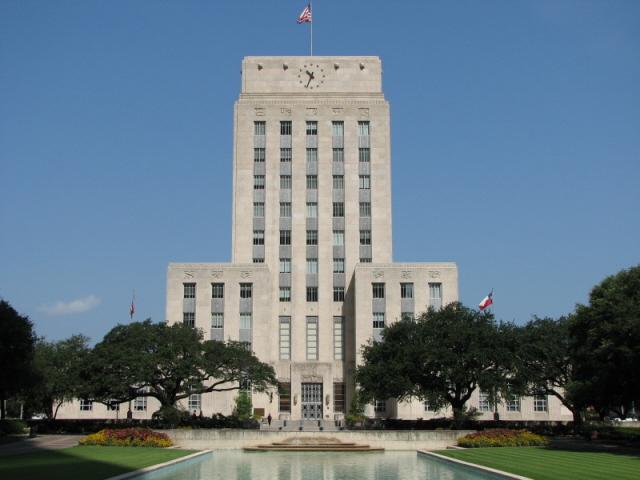Political Highlights of the Week (June 25, 2025) – Houston Public Media
This week’s political arena witnessed pivotal shifts across local, state, and federal spheres, setting the stage for the forthcoming election cycle. From intense legislative sessions in the Texas Capitol to strategic negotiations in Washington, D.C., influential policymakers tackled pressing issues such as immigration reform, educational advancements, and climate action. Houston Public Media offers an in-depth examination of the week’s defining political events and their implications for Texans and the national conversation.
Legislative Progress and Policy Shifts This Week
Significant legislative momentum marked this week, with lawmakers pushing forward key bills that promise to reshape the country’s policy framework. The Senate’s approval of a bipartisan infrastructure package stands out, earmarking billions for eco-friendly transportation projects and enhanced digital networks. Concurrently, Congress reignited discussions on data privacy, advancing a groundbreaking proposal designed to tighten consumer data safeguards, now moving into committee evaluation.
Additional noteworthy developments include:
- Healthcare cost reforms: Fresh legislative proposals aim to reduce prescription drug prices, eliciting mixed reactions from industry experts and patient advocates alike.
- Environmental policy advances: A comprehensive set of initiatives targeting carbon footprint reduction gained bipartisan traction, signaling a collaborative approach to energy reform.
- Boosts in education funding: The House passed legislation to increase federal support for public schools, with a focus on STEM education and underserved populations.
| Legislation | Current Status | Projected Outcome |
|---|---|---|
| Green Infrastructure Act | Senate Approved | Enhances sustainable transit capacity by 30% |
| Consumer Data Protection Act | Under Committee Review | Establishes stricter privacy standards |
| Prescription Drug Cost Reduction Bill | In Legislative Debate | Potentially lowers expenses for millions |
State Election Results and Their Governance Implications
The latest statewide elections have introduced a transformed political environment that will influence policy decisions for the foreseeable future. Victories by both rising political figures and seasoned incumbents reflect shifting voter concerns, especially regarding economic policies, healthcare accessibility, and environmental sustainability. The altered composition of state legislatures reveals a more polarized yet vibrant political climate, with several districts changing party control, thereby impacting legislative strategies in upcoming sessions.
Anticipated consequences include:
- Greater emphasis on bipartisan infrastructure projects aimed at revitalizing local economies.
- Expanded funding for education reforms, including new performance standards for students.
- Stricter regulations to enhance climate resilience and promote sustainable growth.
| Political Party | Seats Secured | Change Since 2024 | Governorships Held |
|---|---|---|---|
| Democrats | 125 | +10 | 18 |
| Republicans | 120 | -8 | 24 |
| Independents/Others | 5 | -2 | 1 |
This electoral realignment highlights the nation’s evolving political dynamics, where voter priorities increasingly influence governance. Observers and citizens should anticipate a surge of new policies that may redefine social and economic landscapes at the state level.
Strategic Political Moves in Houston and the Wider Region
Houston’s political scene this week showcased a mix of strategic initiatives by prominent leaders aiming to consolidate their positions ahead of elections. Mayor Sylvester Turner’s recent infrastructure campaign, heavily promoted via digital platforms, focuses on bridging urban disparities and fostering community engagement through localized projects. Simultaneously, State Senator Carol Alvarado has intensified her advocacy for education reform, targeting Houston’s expanding Latino electorate with grassroots mobilization efforts. These divergent tactics highlight the delicate balance between broad policy visibility and targeted voter outreach.
Across Texas, political realignments are evident as candidates capitalize on regional strengths. In Harris County, coalition-building efforts are underway to counteract voter disengagement. Key strategic approaches include:
- Analytical voter segmentation: Employing data analytics to pinpoint swing voters in suburban areas.
- Localized issue targeting: Customizing campaign messages around specific concerns such as water resource management and property tax reform.
- Centrist outreach: Engaging moderate voters through bipartisan messaging and endorsements.
| Political Leader | Core Strategy | Primary Voter Group |
|---|---|---|
| Mayor Sylvester Turner | Urban infrastructure enhancement | Inner-city residents |
| Senator Carol Alvarado | Championing education reform | Latino communities |
| Harris County Coalition | Data-driven voter outreach | Suburban moderates |
Enhancing Voter Participation and Civic Engagement Strategies
Boosting voter turnout demands a comprehensive strategy emphasizing accessibility, education, and active community involvement. Election authorities and civic groups should broaden early voting options and ensure polling sites are conveniently located for diverse populations. Moreover, investing in robust voter education initiatives—leveraging social media, community events, and collaborations with educational institutions—can clarify voting procedures and underscore their importance. Combating misinformation and fostering fact-based discussions remain essential to cultivating an informed electorate.
Effective methods to increase civic engagement include:
- Adopting automatic voter registration to expand the voter base
- Organizing community forums and town halls to facilitate dialogue between voters and candidates
- Implementing youth-focused civic programs that combine education with practical participation
- Utilizing mobile voting units and mail-in ballots to accommodate varied schedules and accessibility needs
| Program | Intended Audience | Anticipated Benefit |
|---|---|---|
| Digital Voter Education Hub | New voters | Enhanced knowledge and confidence |
| Mobile Ballot Stations | Rural populations | Improved voting access |
| Youth Civic Engagement Workshops | High school and college students | Early development of voting habits |
Conclusion
As political currents continue to shift, this week’s events highlight the fluid and multifaceted nature of governance and policy-making. Houston, alongside the broader national stage, remains a focal point for critical debates that will influence the months ahead. Stay connected with Houston Public Media for ongoing updates and thorough analyses of the issues that resonate most with our community and the country.




